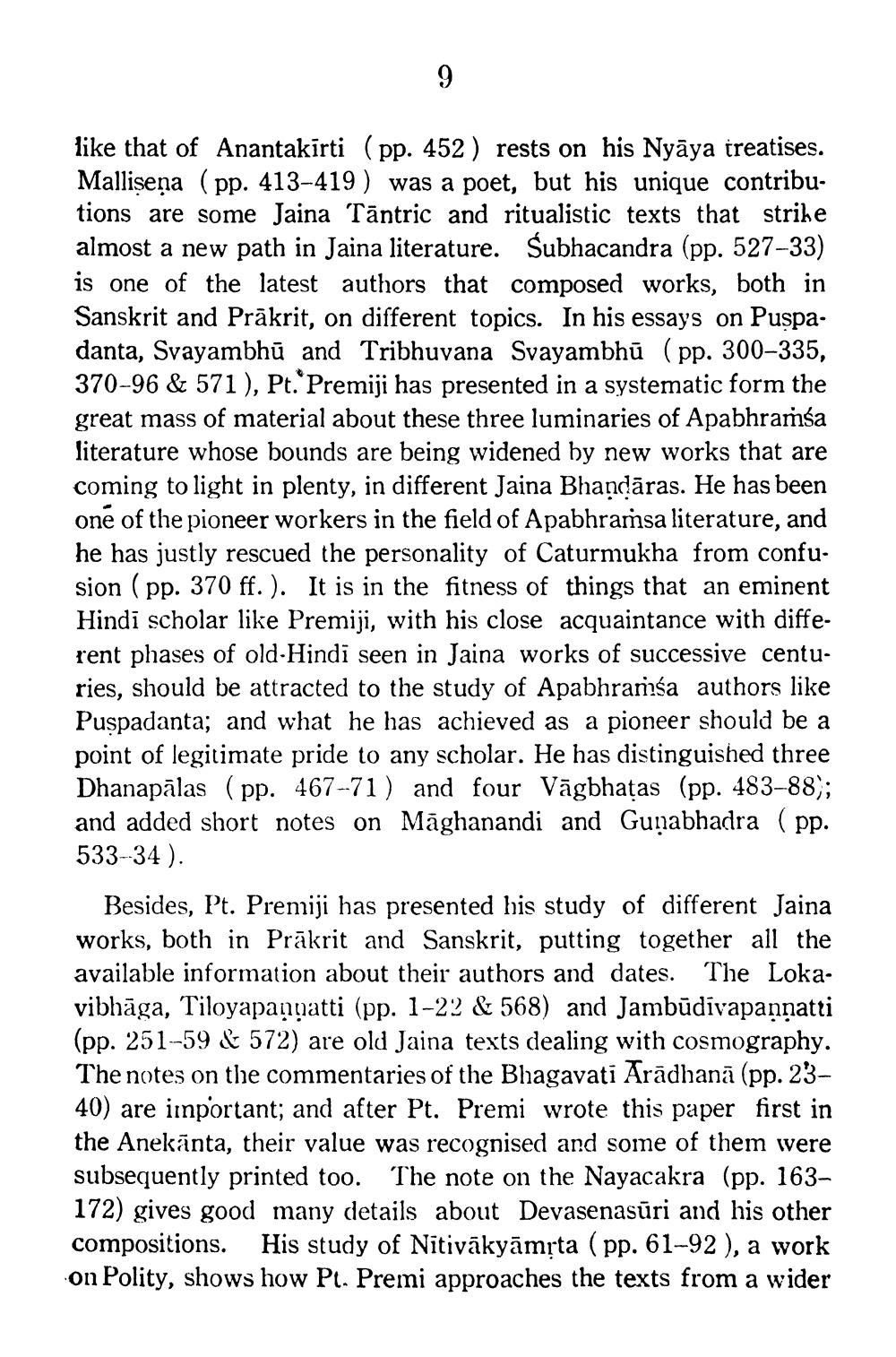________________
9
like that of Anantakirti (pp. 452) rests on his Nyaya treatises. Mallisena (pp. 413-419) was a poet, but his unique contributions are some Jaina Tantric and ritualistic texts that strike almost a new path in Jaina literature. Śubhacandra (pp. 527-33) is one of the latest authors that composed works, both in Sanskrit and Prakrit, on different topics. In his essays on Puspadanta, Svayambhu and Tribhuvana Svayambhu (pp. 300-335, 370-96 & 571), Pt. Premiji has presented in a systematic form the great mass of material about these three luminaries of Apabhraṁśa literature whose bounds are being widened by new works that are coming to light in plenty, in different Jaina Bhaṇḍāras. He has been one of the pioneer workers in the field of Apabhramsa literature, and he has justly rescued the personality of Caturmukha from confusion (pp. 370 ff.). It is in the fitness of things that an eminent Hindi scholar like Premiji, with his close acquaintance with different phases of old-Hindi seen in Jaina works of successive centuries, should be attracted to the study of Apabhramsa authors like Puspadanta; and what he has achieved as a pioneer should be a point of legitimate pride to any scholar. He has distinguished three Dhanapalas (pp. 467-71) and four Vagbhaṭas (pp. 483-88); and added short notes on Maghanandi and Gunabhadra (pp. 533-34).
Besides, Pt. Premiji has presented his study of different Jaina works, both in Prakrit and Sanskrit, putting together all the available information about their authors and dates. The Lokavibhāga, Tiloyapanṇatti (pp. 1-22 & 568) and Jambūdivapaṇṇatti (pp. 251-59 & 572) are old Jaina texts dealing with cosmography. The notes on the commentaries of the Bhagavati Aradhanā (pp. 23– 40) are important; and after Pt. Premi wrote this paper first in the Anekanta, their value was recognised and some of them were subsequently printed too. The note on the Nayacakra (pp. 163172) gives good many details about Devasenasuri and his other compositions. His study of Nītivākyāmṛta (pp. 61-92), a work on Polity, shows how Pt. Premi approaches the texts from a wider




